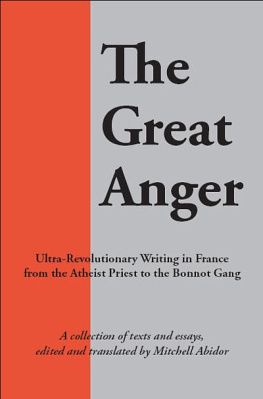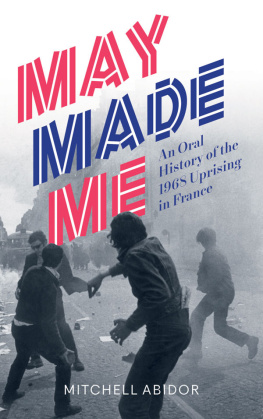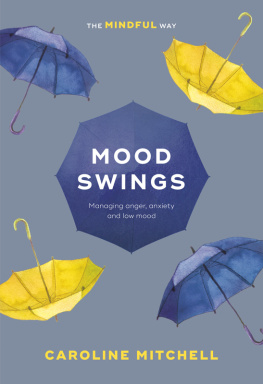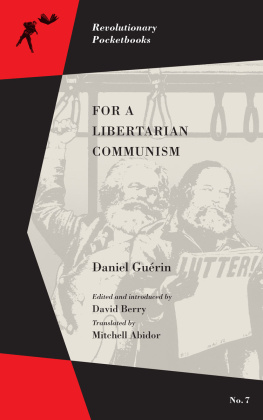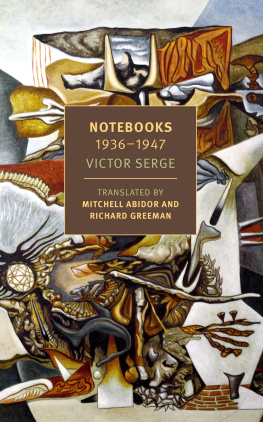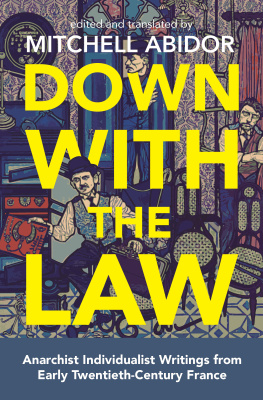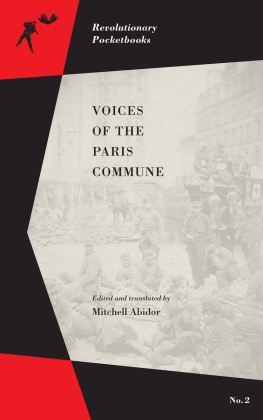Mitchell Abidor - The Great Anger
Here you can read online Mitchell Abidor - The Great Anger full text of the book (entire story) in english for free. Download pdf and epub, get meaning, cover and reviews about this ebook. year: 0100, publisher: Marxists Internet Archive, genre: Religion. Description of the work, (preface) as well as reviews are available. Best literature library LitArk.com created for fans of good reading and offers a wide selection of genres:
Romance novel
Science fiction
Adventure
Detective
Science
History
Home and family
Prose
Art
Politics
Computer
Non-fiction
Religion
Business
Children
Humor
Choose a favorite category and find really read worthwhile books. Enjoy immersion in the world of imagination, feel the emotions of the characters or learn something new for yourself, make an fascinating discovery.
- Book:The Great Anger
- Author:
- Publisher:Marxists Internet Archive
- Genre:
- Year:0100
- Rating:3 / 5
- Favourites:Add to favourites
- Your mark:
- 60
- 1
- 2
- 3
- 4
- 5
The Great Anger: summary, description and annotation
We offer to read an annotation, description, summary or preface (depends on what the author of the book "The Great Anger" wrote himself). If you haven't found the necessary information about the book — write in the comments, we will try to find it.
The Great Anger — read online for free the complete book (whole text) full work
Below is the text of the book, divided by pages. System saving the place of the last page read, allows you to conveniently read the book "The Great Anger" online for free, without having to search again every time where you left off. Put a bookmark, and you can go to the page where you finished reading at any time.
Font size:
Interval:
Bookmark:
Edited and translated by
Mitchell Abidor
Published by the Marxists Internet Archive2009
P.O. Box 1541; Pacifica, CA 94044; USA.
Kindle version compiled by Andy Blunden 2013.
Cover design by Joan Levinson.
Abidor, Mitchell
The Great Anger: French history, anarchism, atheism
Acknowledgements
I would first like to thank all thevolunteers at the Marxists Internet Archive ( www.marxists.org )where most of these texts initially appeared.
In particular, I want to thank:
Michael Schauerte, Sam Berner, and LiviuJacob all helped in reviewing and editing my translations of the texts.
Stphane Beau, keeper of the flame ofGeorges Palantes philosophy, was the source of many texts and leads.
Curtis Price was unfailingly helpful andgenerous in tracking down and providing hard-to-find texts from the anarchistindividualist tradition.
The most indispensable partner in thisendeavor was Andy Blunden of the Marxists Internet Archive. He was my initialcontact at the Archive and has provided me with support, guidance, andencouragement. His friendship and insights are invaluable to me. The Great Anger would not exist withouthim.
And I have no words to express my gratitudeto my wife, Joan Levinson.
Mitchell Abidor
September 2008
Now that what passes for French politicalthought and philosophy has fallen before the onslaught of what the historianTony Judt calls the Higher Drivel, we need more than ever to remember thatthings were not always this way. France was once the scene of lively andunbridled political discourse, aimed not at a university elite, but at the people,the ones actually suffering under the existing order. The main voices of thistradition, which we can roughly trace from the early eighteenth to the earlytwentieth centuries, hated this world and its injustice, and their mainemotion, the motivating force of their actions, was their Great Anger.
The phrase the Great Anger appears in thecontext of the pages of the most unrestrained journal of the French Revolution,the Pre Duchesne (Old Man Duchesne) of Jacques Hbert. The title of eachissue of Hberts journal spelled out Pre Duchesnes emotion at that moment.And so we had the Great Anger of Old Man Duchesne against the fuckingslanderers of the ladies of Les Halles and the flower sellers of the PalaisRoyal. But this phrase, the Great Anger, is also a description of a current inFrench revolutionary activity. In the nineteenth and twentieth centuries,France didnt lack for theoreticians of revolutionary action, but it alsodidnt lack what can perhaps be called theoreticians of no theory,anti-theoreticians who believed that revolutionary action was the truestexpression of revolutionary theory.
In the early- to mid-nineteenth century,there were thinkers who constructed theories that would serve as the basis fora better future, men such as Charles Fourier and Etienne Cabet with their utopiandesigned communities. There were also writers and activists who were moved notby a hypothetical beautiful tomorrow, but by the reality of a hateful today,one that had to be attacked in all ways and at whatever the cost. This is notto say that their viewpoint had no intellectual underpinnings or that it lackedroots in Frances past. The struggle against the existing order during thisperiod passed through two mutually supporting areas of action: the fightagainst God and the fight against those in power, the principles of which werelaid out in the seventeenth century by an obscure country priest. Atheism beingat the very heart of the Great Anger, its history actually begins with thefirst masterpiece of atheism, Jean Mesliers Mmoire contre la religion. This massive book, written in secretby the country priest, contained everything that was to follow: the contestingof God and of the social structure that depended on God as its ally and itssupport. The great nineteenth-century revolutionary conspirator Auguste Blanquicalled one of his many journals Ni dieu ni matre, neither God normaster. And these twin evils had already been analyzed and theoretically demolished,and an alternative vision of the future was proposed by Jean Meslier. Meslierexerted a tremendous influence, one too frequently ignored, on the nextgeneration of pre-Revolutionary thinkers, those of the Enlightenment. Thephilosophers of the Enlightenment were strongly influenced by the atheistpriest, and they provided much of the intellectual armament for the cominggenerations of revolutionaries of the Great Anger.
The questioning of the old order byRousseau, Voltaire, Diderot, dHolbach, and others was essential in laying thefoundation for the direct action of the people, who entered the scene withtheir attack on the Bastille, symbol of tyranny, on July 14, 1789. But thevictory was taken from the people by various progressive factions of the nascentbourgeoisie, and it is at this point that the Great Anger makes its appearanceas an active force. The Enrags, men such as Jacques Roux, AnacharsisCloots, and Jean Varlet, fought the rampant speculation and starvationpolicies, which benefited the rich and harmed the laboring classes. After theliquidation of this group by the Jacobins, Jacques Hbert and his followersfrom the Cordelier Club, took up their fight. The Enrags defense ofpopular interests, their opposition to religion, stood on no grand ideologicalfoundation. Instead, theirs was a rage directed at those who had snatched thepower won by the peoples struggle. Their fight was to ensure themselvessustenance, to prevent the nouveau riche from starving them; and theyexpressed themselves, and their anger, in no uncertain terms.
The machine now set in motion rolled on formore than a hundred years. The fall of Robespierre in July of 1794, thoughinitially applauded by some, was followed by opposition to the reactionaryDirectory that replaced the Jacobins. The anger at the Directory took concreteform in the Conspiracy of Equals of Gracchus Babeuf and his followers in 1795.Here, in this early and abortive outbreak, we again see the confluence of thestruggles against economic and political injustice with the struggle againstGod. Sylvain Marchal, author of the Conspiracys manifesto, had beenand wouldcontinue to be until his deatha militant advocate for a godless communistsociety, the same society called for by Jean Meslier whom he so admired.
Auguste Blanqui tied all of these strandstogether over the course of the three great French revolutions of thenineteenth century, those of 1830, 1848, and the Paris Commune of 1871. Blanquiwas less concerned with laying out a strict plan for the future communistsociety than with the blueprints for the organization that would bring down theexisting order. Decades in prison did nothing to still the rage of Lenferm,the Imprisoned, a rage directed not only at those in power, but also againstthose who had betrayed the fight, those too weak to stay the course, those alltoo willing to compromise. Ever optimistic, Blanqui believed almost any yearwas equally propitious for the final conflict; for him, the revolution wasalways the Thursday after next.
The Paris Commune of 1871 began in a burstof anger, that of the Parisians who had been defeated by the Prussians inNapoleon IIIs war against Prussia. The workers of Paris refused to surrendertheir cannons to the republic of Adolphe Thiers, which had fled Paris for Versailles,replacing the fallen empire. The ensuing revolutionary seizure of power wasproof that rage and humiliated pride can be the motivating forces for a truerevolutionary struggle, one without any prepared plan or clear direction otherthan that of giving power to those who had been deprived of it. It was thegenius of the French working class that led it to spontaneously find the formsfor its power; but it was the same lack of a plan that prevented the GreatAnger from maintaining its hold on that power. More importantly, it also posesthe question of the viability of inchoate rage as a basis for the seizing ofpower. Later, Marxist theory and Leninist practice provided some answers tothese questions.
Font size:
Interval:
Bookmark:
Similar books «The Great Anger»
Look at similar books to The Great Anger. We have selected literature similar in name and meaning in the hope of providing readers with more options to find new, interesting, not yet read works.
Discussion, reviews of the book The Great Anger and just readers' own opinions. Leave your comments, write what you think about the work, its meaning or the main characters. Specify what exactly you liked and what you didn't like, and why you think so.

